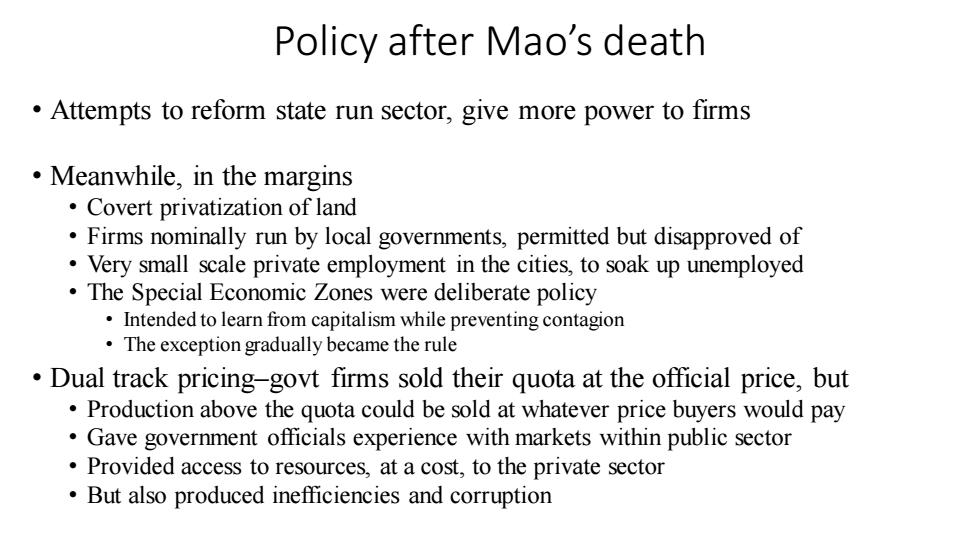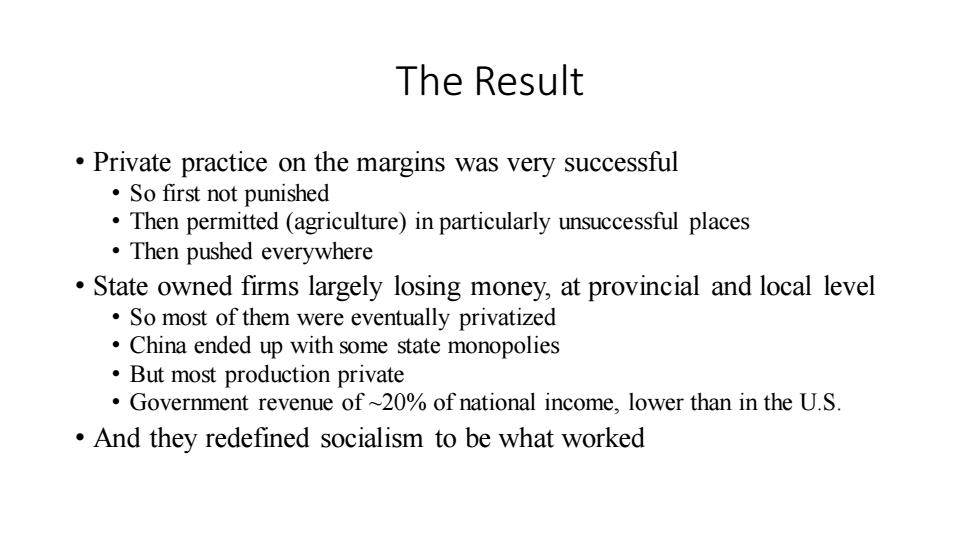
Policy after Mao's death Attempts to reform state run sector,give more power to firms Meanwhile,in the margins Covert privatization of land Firms nominally run by local governments,permitted but disapproved of Very small scale private employment in the cities,to soak up unemployed The Special Economic Zones were deliberate policy Intended to learn from capitalism while preventing contagion The exception gradually became the rule Dual track pricing-govt firms sold their quota at the official price,but Production above the quota could be sold at whatever price buyers would pay Gave government officials experience with markets within public sector Provided access to resources,at a cost,to the private sector But also produced inefficiencies and corruption
Policy after Mao’s death • Attempts to reform state run sector, give more power to firms • Meanwhile, in the margins • Covert privatization of land • Firms nominally run by local governments, permitted but disapproved of • Very small scale private employment in the cities, to soak up unemployed • The Special Economic Zones were deliberate policy • Intended to learn from capitalism while preventing contagion • The exception gradually became the rule • Dual track pricing–govt firms sold their quota at the official price, but • Production above the quota could be sold at whatever price buyers would pay • Gave government officials experience with markets within public sector • Provided access to resources, at a cost, to the private sector • But also produced inefficiencies and corruption

The Result Private practice on the margins was very successful ·So first not punished Then permitted(agriculture)in particularly unsuccessful places Then pushed everywhere State owned firms largely losing money,at provincial and local level So most of them were eventually privatized China ended up with some state monopolies But most production private Government revenue of~20%of national income,lower than in the U.S And they redefined socialism to be what worked
The Result • Private practice on the margins was very successful • So first not punished • Then permitted (agriculture) in particularly unsuccessful places • Then pushed everywhere • State owned firms largely losing money, at provincial and local level • So most of them were eventually privatized • China ended up with some state monopolies • But most production private • Government revenue of ~20% of national income, lower than in the U.S. • And they redefined socialism to be what worked